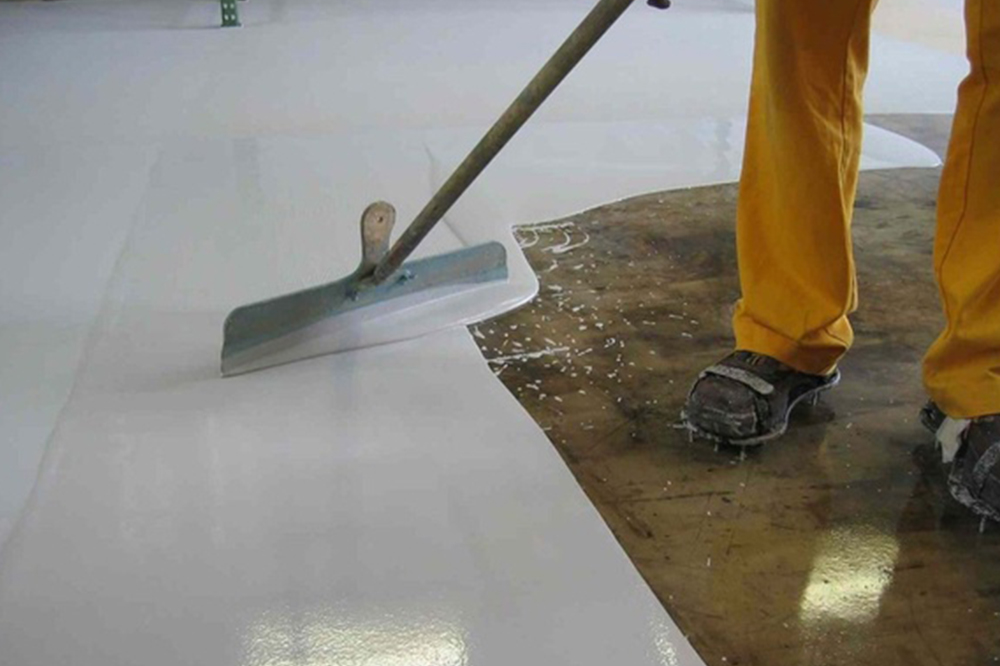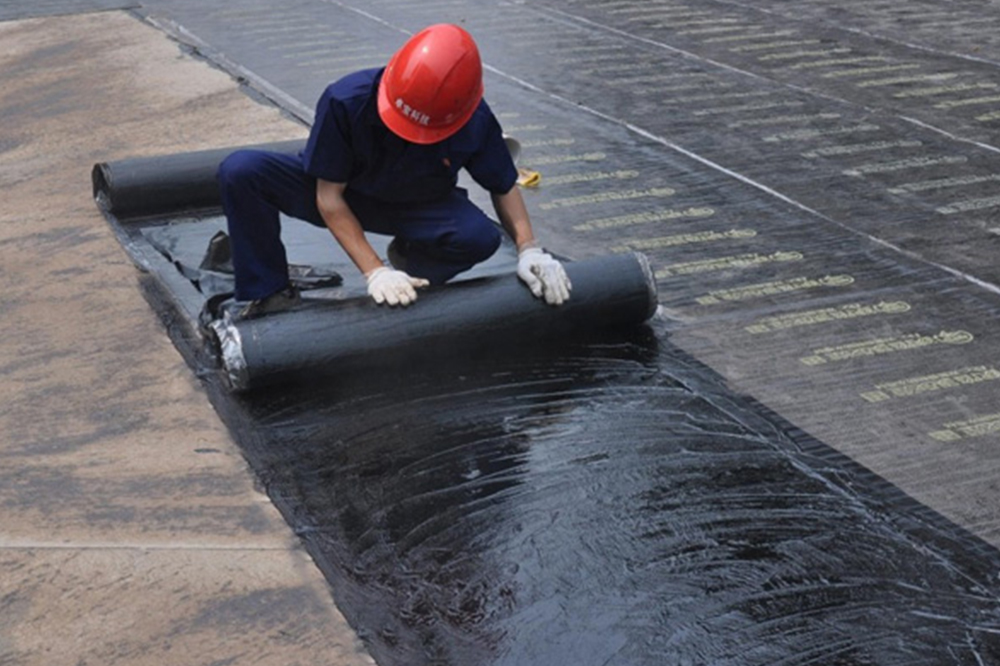The term Epoxy is used to represent/denote a class of material which when mixed forms a hard substrate that can be coated over a base material. When mixed, the resin and hardener chemically react to form a rigid plastic material. The resultant material is the final material and is strong, durable, resistant, and bonds extremely well to most base layers.

Need for Epoxy flooring
Epoxy floorings are used for several purposes.A few of them include the increasing appearance and elegance of a building. For example SELF –LEVELLING epoxy flooring is a coating done on the base flooring. This seals the cavities, fills in the cracks, and increases the appearance and the texture of the flooring.
Epoxy Flake Floors
Flake floor systems are made by mixing colored chips or flakes in the base resin to create vibrant, multi-hued, seamless, resilient surfaces. The chips are aesthetically pleasing, and also increase friction to prevent falls.
Anti-Static Epoxy Floors (ESD Resistant Floors):
In environments that handle flammable materials, Electro-static charge (ESD) is extremely dangerous and can cause accidents. To ensure and assure safety, Anti-static epoxy flooring helps to reduce electrostatic hazards.
Ready To Grow Your Business?
Mirra Bts is a leading provider of Customized Aerocon Service from the design and engineering
Epoxy Mortar Floors – To increase strength and hardness and attain Ultra-tough properties, Epoxy Mortar Floors are installed. This high-build, seamless system is attained with 100% solids epoxy and graded sand and then troweled into place with the mixture. Mortar systems are highly tough and chemical-resistant.
Quartz-Filled Epoxy Floors – Combining high-performance epoxy polymer resin with colored quartz grains to form Quartz epoxy flooring. Grain size vary based on application. The result is a multi-functional floor that’s decorative, sanitary, slip-resistant, and exceptionally durable.

Properties of Epoxy flooring material
Combination of resin and hardener results in the final material that is strong, durable, resistant, and bonds well to most base layers by using certain processes. Epoxy floors are strong that they’re often used in heavy traffic areas such as industrial environments, hospitals, or sports facilities to prevent skinning.
Specialized Industries
1)What is epoxy materials?
Epoxy materials are a combination of resin and hardener results in the final material that is strong, durable, resistant, and bonds well to most base layers by using a certain process.
2)Where are the properties of Epoxy flooring used?
Since Epoxy flooring materials are strong, hard, and resistant to temperature they’re often used in heavy traffic areas such as industrial environments, hospitals, or sports facilities to prevent skinning on the floor surface.
3) What are Anti – ESD flooring?
Anti-Static Epoxy Floors (ESD Resistant Floors): In environments that handle flammable materials, Electro-static charge (ESD) is extremely dangerous and can cause accidents. To ensure and assure safety, Anti-static epoxy flooring helps to reduce electrostatic hazards.
4) What is Quartz filled Epoxy floors?
Quartz-Filled Epoxy Floors – Combining high-performance epoxy polymer resin with colour quartz grains to form Quartz epoxy flooring. Grain size vary based on the application and nature of composite used. The result is a multi-functional floor that’s decorative, sanitary, slip-resistant, and exceptionally durable.
5) What are Epoxy Flake Floors
Flake floor systems are made by mixing colour chips or flakes in the base resin to create vibrant, multi-hued, seamless, resilient surfaces to enhance appearance. The chips mixed in the resin are aesthetically pleasing, and also increase friction to prevent falls.
6)Why are Epoxy floors used?
To alter a pathway with minimal intervention, Epoxy flooring is used. The resin is mixed with a certain chemical that forms a hardened surface over the basic flooring. The mechanical properties of the standard floor can thus be enhanced without damage.
